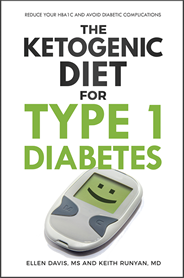Blood Sugar Levels: Know Yours!
Your blood sugar levels are a very important indication of overall health. As average blood sugar levels climb, the risk of diabetes, atherosclerosis and heart disease, and other health problems also goes up.
So, what is blood sugar? Blood sugar is simply the measurement of the amount of sugar in your blood at any one time. It is usually measured as "fasting blood sugar" by a test in which your blood is analyzed after not eating for 8-12 hours.
There are other tests that measure glucose in the blood, such as a glucose tolerance test, which measures what happens to the sugar in your blood over the next 5 hours after you drink a large amount of sugar water.
Your Blood Sugar Levels
It starts with what you eat. Your body breaks down the foods you eat into 3 different nutrients:
- Glucose, a simple sugar which comes from carbohydrate-based foods.
- Amino acids which come from the protein you consume.
- Fatty acids, which come from the fats that you eat.
Your blood glucose levels usually rise after you eat. When you blood sugar goes up, your pancreas releases insulin to regulate the amount of sugar in your blood. Insulin moves the sugar from the bloodstream into the cells where it can be used for fuel. Normally, the human body keeps blood sugar in a very narrow range for good health. This is because constantly high blood glucose levels can damage the eyes, kidneys, nerves, and blood vessels. Over time, these constantly high blood sugar levels can cause a condition known as insulin resistance.
Think about what happens when you get sugar water on your hands. As it dries, it becomes very sticky, right? Sugar in your blood does the same thing. High levels of sugar in your blood begin to stick to the proteins and cells in your blood stream, and this stickiness causes damage to your body systems. A test called the HBA1c (Hemoglobin A1c) measures the amount of sugar stickiness in your blood, and is a measure of blood sugar levels over time.

Normal and Abnormal Ranges
Medical references rate fasting blood sugar measurements as follows:
- Normal blood sugar: between 60- 100 mg/dl
- Pre -Diabetic : between 101- 126 mg /dl
- Diagnosis of Diabetes : more than 126 mg/dl
Blood glucose levels usually rise after you eat. and levels rise dramatically when you eat carbohydrates. When you blood sugar goes up, your pancreas releases insulin to regulate the amount of sugar in your blood. Insulin moves the sugar from the bloodstream into the cells where it can be used for fuel.
Normally, the human body keeps blood sugar in a very narrow range for good health. This is because constantly high blood glucose levels can damage the eyes, kidneys, nerves, and blood vessels. Think about what happens when you get sugar water on your hands. As it dries, it becomes very sticky, right? Sugar in your blood does the same thing. High levels of sugar in your blood begin to stick to the proteins and cells in your blood and tissues, and this stickiness causes damage. A test called the HBA1c (Hemoglobin A1c) measures the amount of sugar-stickiness in your blood, and is a widely-used measure of average blood sugar levels over time.
In addition, if blood sugar stays high all the time, your cells become overwhelmed by the amount of sugar being pushed to them. Baseline insulin levels increase to force the sugar in, and eventually, the body develops insulin resistance to try to save itself from the glut of sugar and insulin signaling.
How to Lower Your Blood Sugar Naturally
Keeping your blood sugar low necessitates that you lower your carbohydrate intake. When you eat less carbs, your body is better able to keep sugar levels within a normal range.
Caveat: A low carb diet can result in an elevated fasting blood sugar. I believe this is because of what Peter over at the Hyperlipid blog calls physiological insulin resistance. Basically this means that when one eats a very low carb diet, the muscles burn fat for fuel, and this leaves more blood sugar in the blood stream. This is not a dangerous condition, and the same person will show a much lower HBA1c level (below 5).
In addition, just 20 minutes of resistance exercise has a major effect on blood sugar levels and insulin sensitivity.
A fact to remember: At any one time, a normal human body has only ONE teaspoon of sugar circulating in the blood. When you drink a 12 ounce full sugar soda, or eat a plate of pasta, you are dumping an extra twelve to fifteen teaspoons of sugar into your bloodstream in a very short time.
Supplements Which Lower Blood Sugar
The following substances have been shown in some studies (and in my own experience) to lower blood sugar levels upon consumption. There are always counter studies however, so do your own research and talk to your physician before taking any supplement. This is very important if you have diabetes and take blood-sugar lowering medications. Combining these supplements with drugs can have unexpected effects on your blood sugar.
- Biotin (B vitamin)
- Alpha Lipoic Acid
- Vitamin D (See this discussion)
- Chromium GTF
- Coconut Oil or MCT oil
- Cinnamon
- Exogenous ketone supplements
- Berberine
More Information
Here's a more comprehensive page with a variety of blood sugar level charts for your use, and the books below are recommended resources for further study.
All of my books are available in electronic PDF, and now in paperback on Amazon!
 |
 |
 |
|
Buy paperbook on Buy paperback on Amazon Buy the e-Book via Paypal |
Buy paperback on Buy paperback on Amazon Buy the e-Book via Paypal |
Buy paperback on Buy paperback on Amazon Buy the e-Book via PayPal |